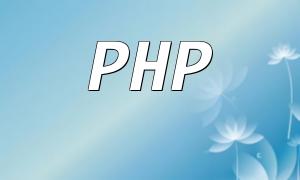On Linux, using PHP from the command line is very simple. You can execute a PHP script by entering the following command in the terminal:
<span class="fun">php your_script.php</span>
This command will execute the `your_script.php` file in the current directory. Make sure that your PHP environment is correctly installed and that the PHP installation path is included in the PATH variable.
To quickly check the current PHP version, you can use the following command:
<span class="fun">php -v</span>
This command will output the PHP version and some other configuration data. It is very useful for troubleshooting compatibility issues.
In the Linux command line, you can execute PHP code directly without creating a script file. Use the following syntax:
<span class="fun">php -r "echo 'Hello, World!';"</span>
The `-r` flag allows you to run the specified PHP code directly from the command line.
For debugging, you can use `var_dump()` or `print_r()` to output variable information. This works in the command line as well:
<span class="fun">php -r "var_dump($yourVariable);"</span>
This helps quickly view the structure and content of variables, greatly improving debugging efficiency.
PHP has several features in command-line mode that make it easier to manage programs. For example, you can use the `getopt()` function to process command-line parameters. Here's a simple example:
$options = getopt("u:p:");
echo "Username: " . $options['u'] . "\n";
echo "Password: " . $options['p'] . "\n";This code shows how to use `getopt()` to parse command-line options.
When running long-running PHP scripts, you might encounter timeout issues. You can extend the maximum execution time by setting the `max_execution_time` option:
<span class="fun">php -d max_execution_time=300 your_script.php</span>
This command sets the maximum execution time to 300 seconds when running `your_script.php`.
By mastering the above PHP command line tips for Linux, you will be able to develop, debug, and execute scripts more efficiently. These tips are not only useful for everyday development work but also lay the foundation for creating more complex command-line tools. We hope this article helps you improve your PHP command line skills.









